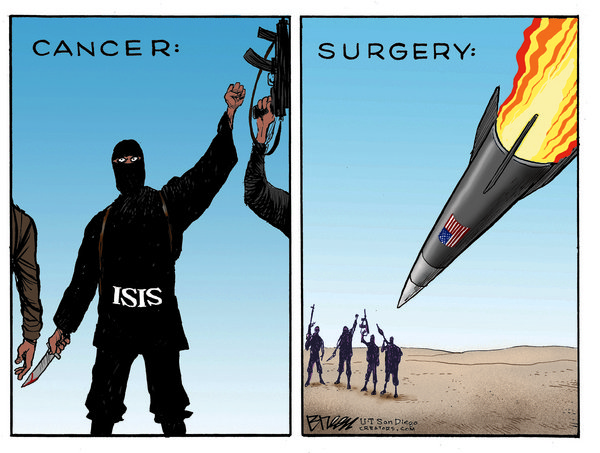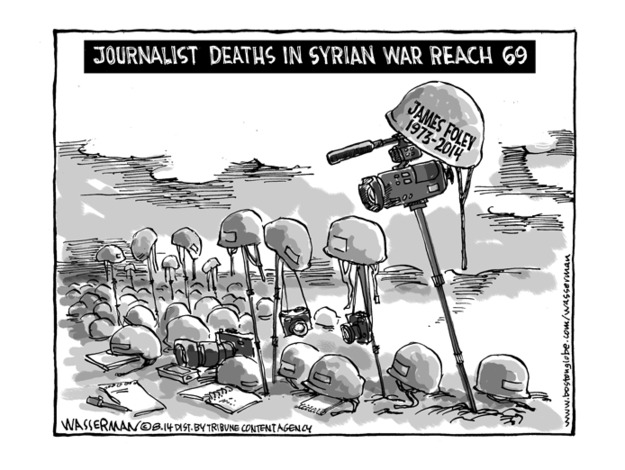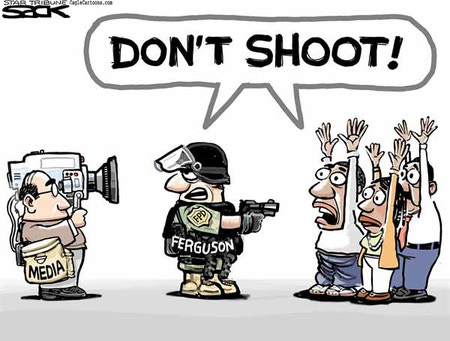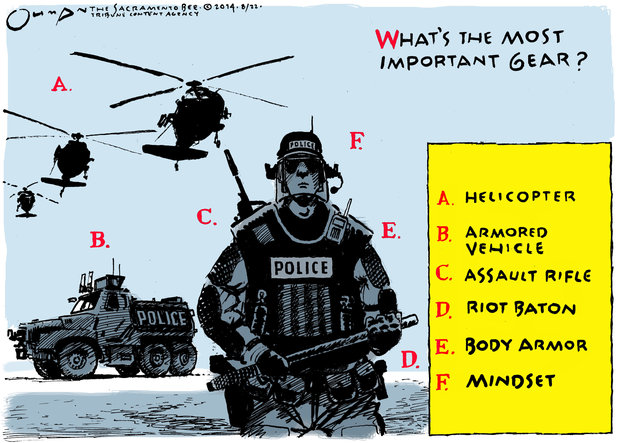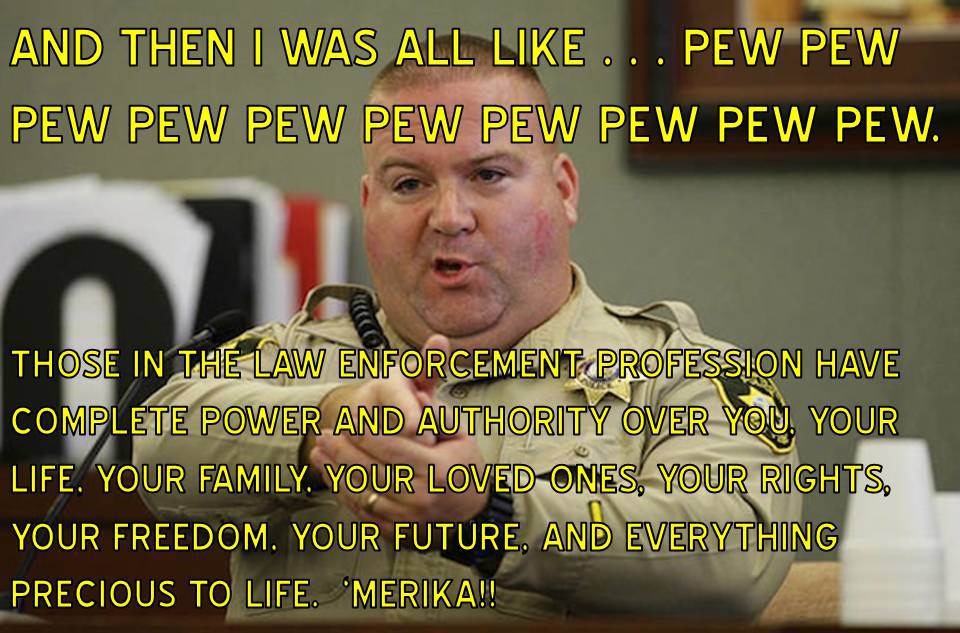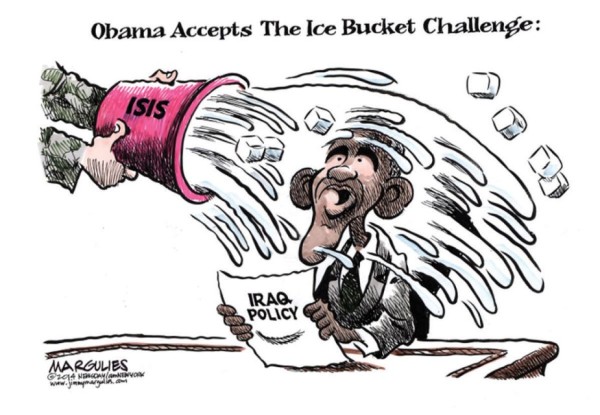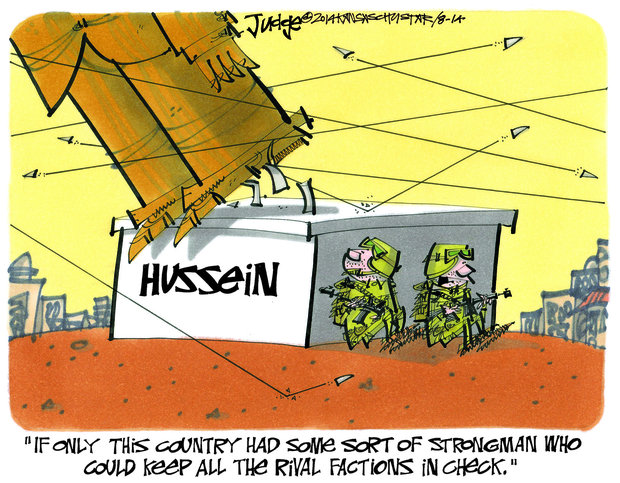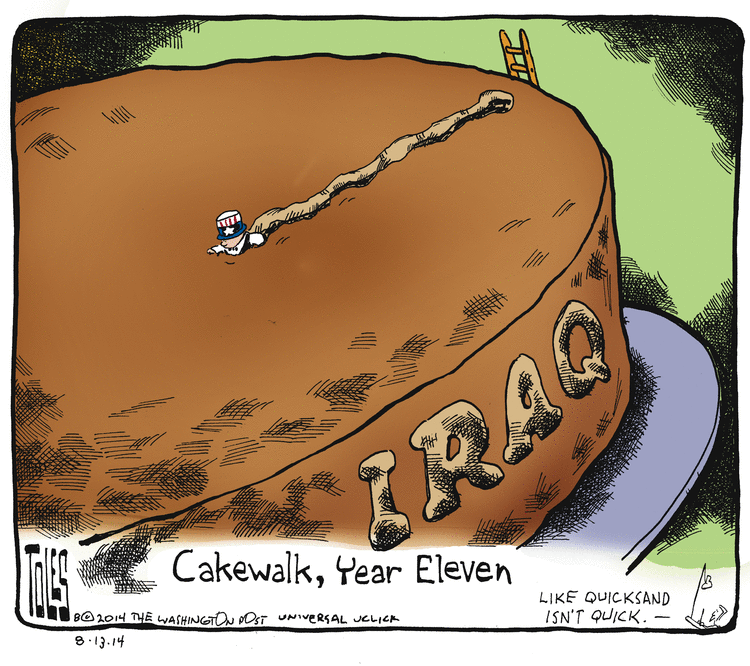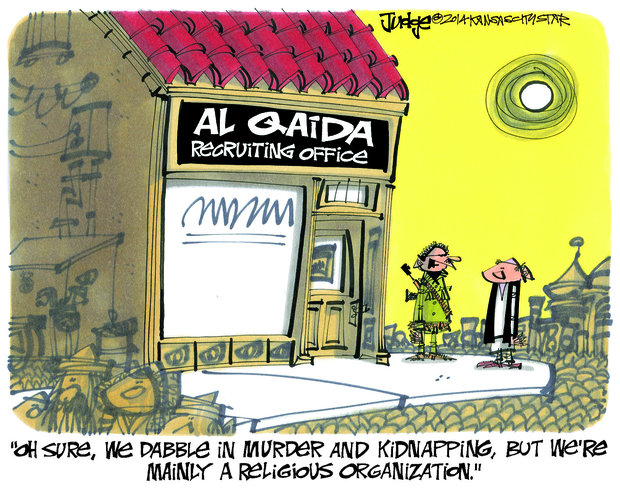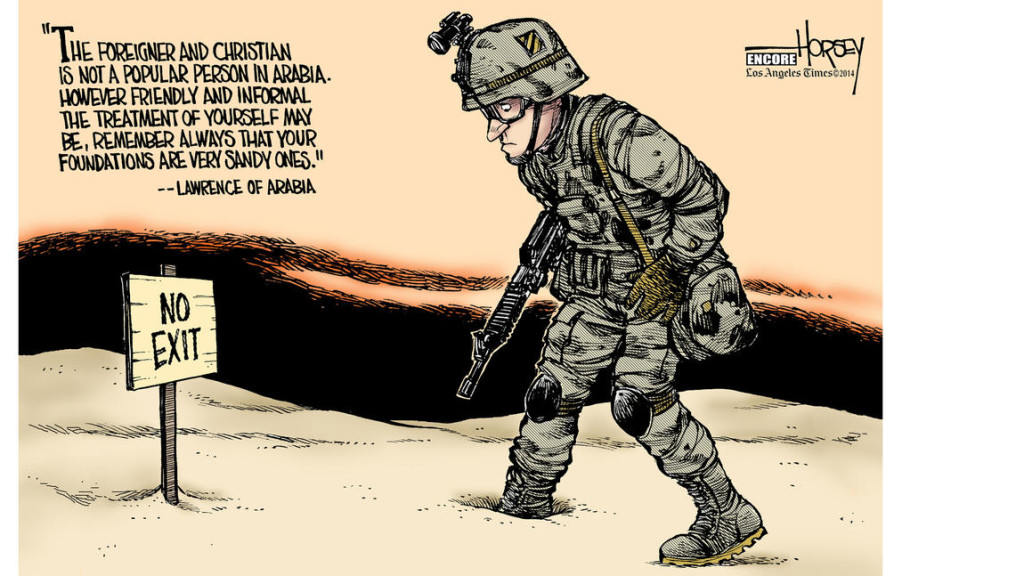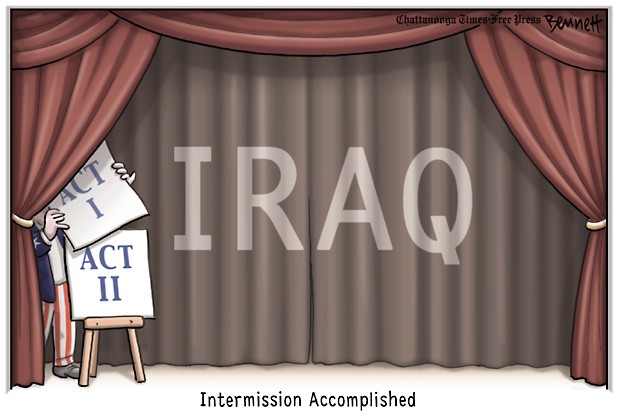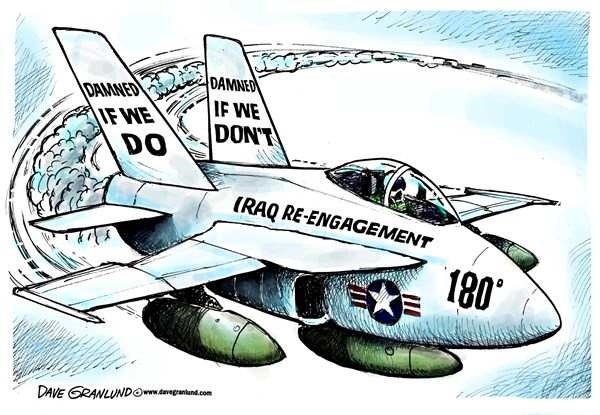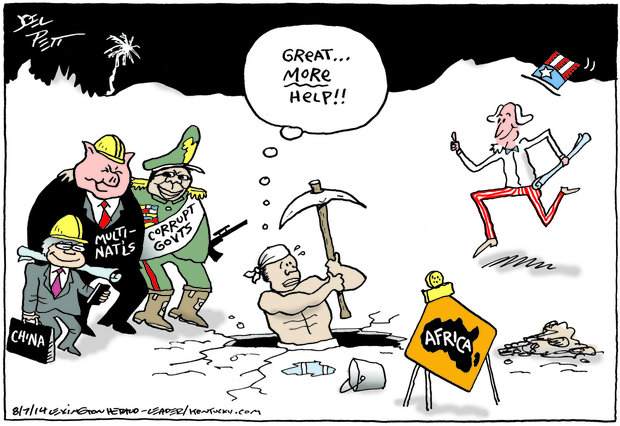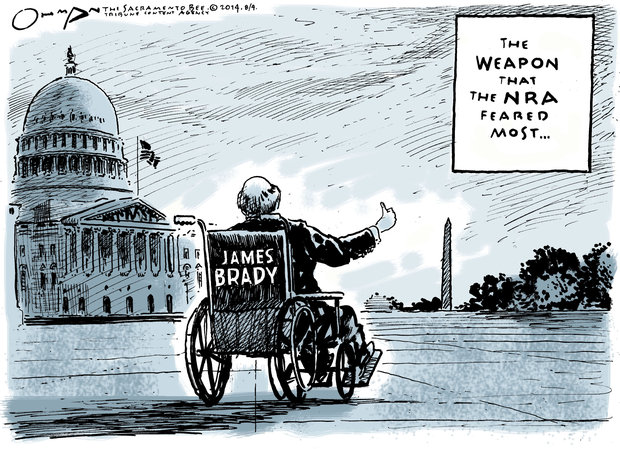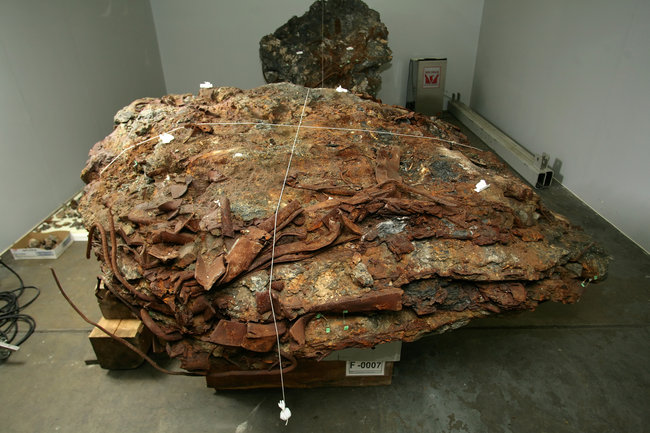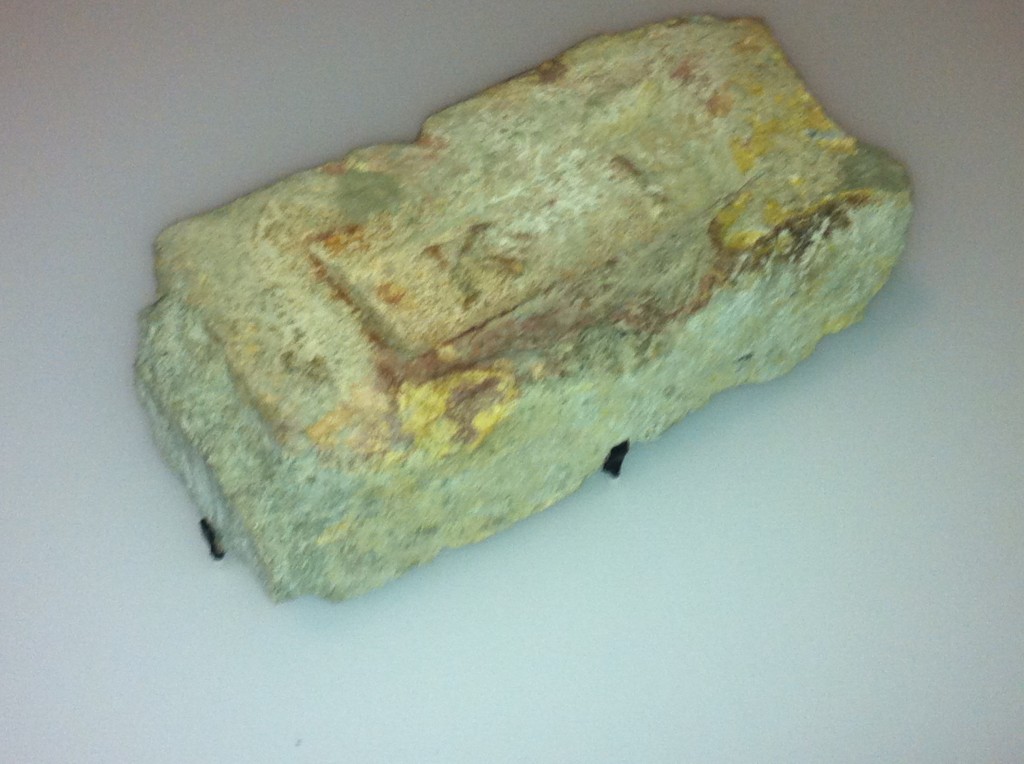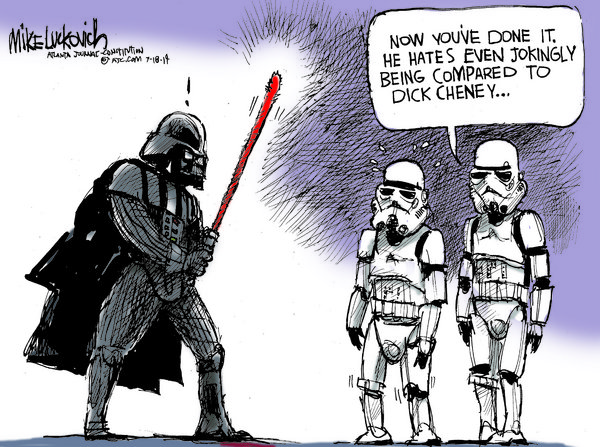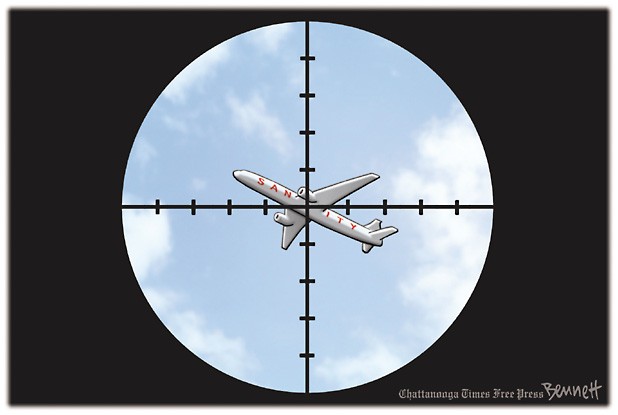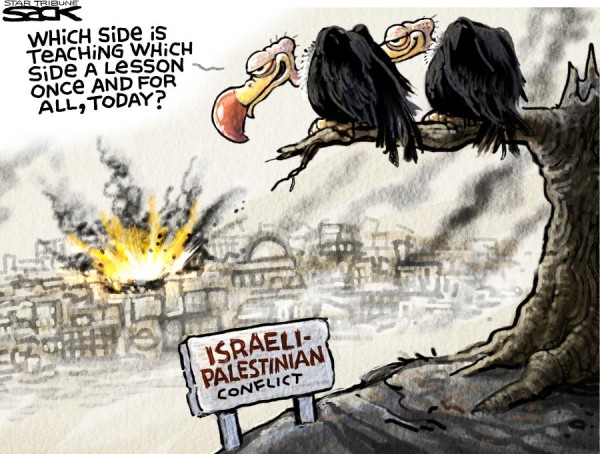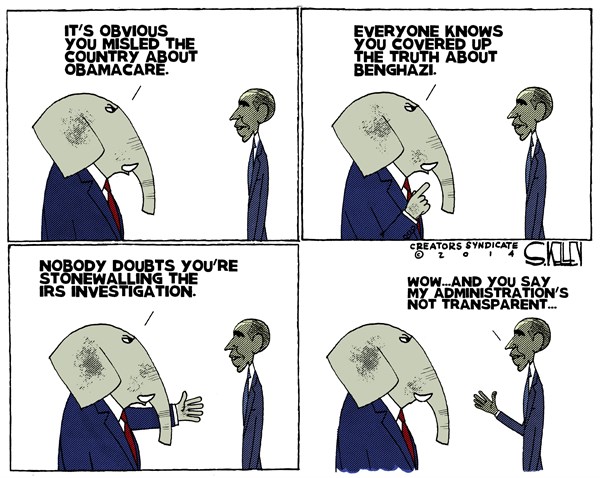Syria, Ukraine, Iraq, Afghanistan, and ISIS: We have to do something! What’s the plan, Obama? In fact most Americans have heard that Mr. Obama said “we don’t have a strategy yet” to deal with ISIS.
WTF? In fact, Obama was speaking solely about ISIS in Syria. A reporter asked last Thursday:
Do you need Congress’s approval to go into Syria?
Obama replied:
We don’t have a strategy yet…We need to make sure that we’ve got clear plans, that we’re developing them. At that point, I will consult with Congress
This has led to the “We have to do something” chorus. Consider Fox Anchor Heather Childers:
https://twitter.com/HeatherChilders/status/506918798298198018
Ever hear of the “Politician’s Syllogism”? It is a logical fallacy that takes this form:
1. We have to do something
2. This is something
3. Therefore, we have to do this.
Sound familiar? We see and hear it every Sunday morning on “Bloviating with The Old Pundits”, also known as the network week in review shows. Here is what this can lead to: The Hill reports that House and the Senate are considering action to “do something”:
Rep. Frank R. Wolf, R-Va., said in a statement Wednesday he will introduce legislation when Congress reconvenes next week that would authorize the use of military force against ISIS and other terror groups around the world, including al Nusra, Ansar al Sharia, al Shabaab and Boko Haram
House Speaker Boehner said in an appearance on conservative Hugh Hewitt’s radio show that the president will need congressional authority if he wants to strike at ISIS in its Syrian strongholds:
…If he’s going after ISIS…I think he would have to provide a War Powers notification to the Congress…And then it would be up to the House to make a decision about whether we dealt with the issue or not
Are you feeling better? We saw the pitfalls of “We must do something” following 9/11. Initial reactions to the attacks on America were shock and confusion. Traditional ideological divides were blurred, but then the Right trotted out a line that resonated with all Americans and caused the antiwar left to dissolve: We have to do something!
In US political speak, the one thing we have to do “something” about always refers to a foreign policy concern. Politicans don’t feel that we “have to do something” about domestic problems. Poverty? No need to act. Corrupt bankers? Inaction is fine.
In foreign policy, when a crisis flares up overseas, and especially if it involves possible opponents that the War Hawks, the defense industry and the media can categorize as bad guys, “we have to do something” means military action.
But, there are always supplements to military action. Half-measures can come in both military (money and weapons, but no boots on the ground), quasi-military (military and political advisers) and geo-political or diplomatic forms (coalitions, sanctions or embargoes). We can employ some, or all of those options. Or, after careful consideration of our short and long term interests, we can do nothing.
Any and all of that is called “strategy”.
And that’s the problem. We need to do something effective that has long and short term benefits, and that doesn’t bankrupt the nation. We can drop some more bombs and send more advisers. To have a useful strategy, we have to come to grips with these facts:
• We’re going to have to give Assad a pass for killing his countrymen and doing mean things with chemical weapons, because we have to work together on eliminating ISIS
• We may need to ally with Iran, a non-democratic and anti-Sunni regime that most Americans think of as an enemy
• We may need to confront our allies, Saudi Arabia and Turkey, who have, at best, been “soft” on ISIS
• We have to accept that we now bomb our own weapons that have been seized by ISIS. Are we OK with more of that down the road, if that is the outcome of arming the “moderates” in Iraq and Syria?
 With two beheadings, American opinion is being whipped up by certain politicians and the media to get us to strike back, hard. Fine, but let’s spend a few seconds thinking about WHY ISIS is whacking the hornets’ nest that is America. We are told that it is to get America to stop the bombing in Iraq.
With two beheadings, American opinion is being whipped up by certain politicians and the media to get us to strike back, hard. Fine, but let’s spend a few seconds thinking about WHY ISIS is whacking the hornets’ nest that is America. We are told that it is to get America to stop the bombing in Iraq.
Could it be just the opposite, that it is their invitation to join in yet another Middle East quagmire?
Could it be that they want a chance to defeat the “sole superpower” on their way to creating their caliphate? The logic of this form of asymmetric terror is pretty straightforward. But our “tough on defense” politicians fall for it every time. They take another bite of the “counter-insurgency” apple.
It may just be that their strategy (emulating Osama bin Laden), is to:
…in any way possible, enmesh the US and NATO in unwinnable wars, and then watch as the imperial powers disintegrate
ISIS and Al Qaeda are playing a long game. By doing flashy terrorist actions they empower the War Hawks and American conservatives. War Hawks and conservatives thereafter use their rejuvenated mandate to insist on crude and violent actions in the Middle East. They push reluctant centrists and liberals to do the same.
America then completely messes up the campaign, and further weakens its economy and social contract.
Perhaps we should let ISIS terrify Saudi Arabia, Turkey, Iran, Syria, Lebanon, Jordan and the Gulf States to the point where they will all work together to destroy ISIS and its sources of funding instead of begging us to waste American lives and money there.
That is a strategy that is not exactly a do-nothing strategy, but you can already hear the War Hawk chorus, telling America to expect beheadings on Main Street next week.

